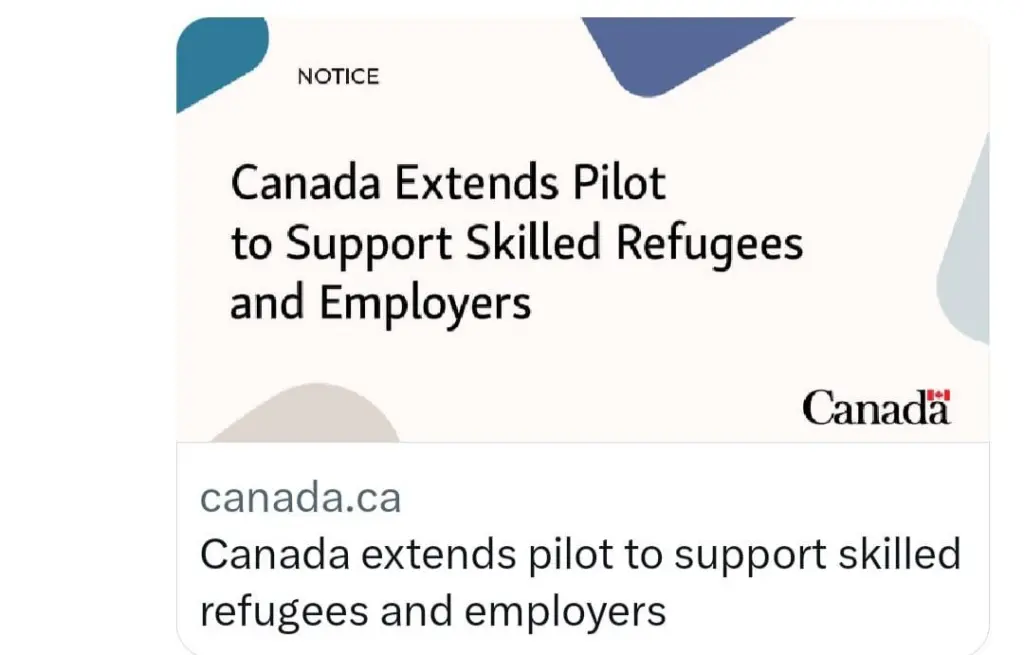Agri-Food Pilot Program: Your Pathway to Permanent Residency in Canada
The economics and food security of Canada are significantly influenced by the country’s agricultural and food production sectors. Yet, there is frequently a labour shortage in certain industries, which can lower productivity. The Canadian government launched the Agri-Food Pilot Program (AFP) to address this issue. For experienced, non-seasonal foreign workers in particular areas and occupations within Canada’s agri-food sector, this project offers a route to permanent residency.
We will go over all you need to know about the Agri-Food Pilot in this blog, including its goals, qualifying requirements, and the sectors and professions it supports. Whether you are a prospective applicant or an employer looking for talent, this guide provides all the essential details.

What Is the Agri-Food Pilot?
Launched to meet the ongoing labour needs of the Canadian agri-food sector, the Agri-Food Pilot helps fill critical gaps by enabling experienced foreign workers to transition to permanent residents. The program focuses on non-seasonal workers employed in specific agri-food industries, offering a stable and permanent workforce to support the sector’s growth and stability.
The pilot provides a pathway for those with experience in essential agricultural jobs, such as meat processing, livestock farming, and mushroom production. Its goal is to retain experienced workers who contribute to Canada’s agricultural economy, offering them and their families a chance for a more secure future in Canada.
Recent Changes to the Program (Effective February 2024)
As of February 10, 2024, the Agri-Food Pilot program introduced new modifications to make it even more accessible for applicants. These modifications demonstrate Canada’s continued commitment to resolving labour shortages in the agri-food industry. The following are some significant updates:
- Flexibility in Meeting the Job Offer or Education Requirement: Applicants living in Canada may now select whether to satisfy the job offer requirement or the educational requirement when submitting their application;
- Expanded Work Experience Eligibility: Applicants who have held multiple work permits may now be more easily eligible;
Find out if you are eligible to get in Canada →
Who Can Apply for Agri-Food Pilot?
The Agri-Food Pilot Program has particular eligibility requirements meant to guarantee that only seasoned and dedicated workers submit their applications. The requirements are broken down as follows:
- Job Offer or Education Requirement: Applicants must have an eligible job offer from a Canadian employer. If you reside in Canada at the time of your application, you may choose to meet either the job offer requirement or the educational requirement.
- Work Experience: You must have a minimum of one year of non-seasonal, full-time work experience in an eligible occupation and industry. This experience can now include time worked under an open work permit for vulnerable workers.
- Language Proficiency: Applicants must meet certain language requirements in either English or French. This ensures that workers can integrate successfully into the Canadian workforce.
- Proof of Funds (if applicable): You may need to show that you have enough money to support yourself and your family after arriving in Canada. However, this requirement may not apply if you are already working in Canada.
- Maintained Temporary Resident Status: If you are already residing in Canada, you must have maintained valid temporary resident status.
Eligible Industries and Occupations for Agri-Food Pilot
To qualify for the Agri-Food Pilot Program, your work experience must be in one of the eligible industries and occupations. These industries are classified by the North American Industry Classification System (NAICS), and the occupations are identified by the National Occupational Classification (NOC).
Here’s a closer look at the industries and occupations eligible under the pilot:
Eligible Industries
- Meat Product Manufacturing (NAICS 3116):
- This includes the production of meat products, such as beef, pork, poultry, and other meats.
- Greenhouse, Nursery, and Floriculture Production (NAICS 1114):
- Includes the cultivation of plants, flowers, and mushrooms in controlled environments.
- Animal Production (NAICS 1121, 1122, 1123, 1124, and 1129):
- Includes cattle ranching, hog farming, poultry and egg production, sheep and goat farming, and other types of animal farming.
Eligible Occupations for Agri-Food Pilot
Specific occupations in these industries qualify under the program. Some of the common job roles include:
- Meat Product Manufacturing (NAICS 3116):
- NOC 63201: Butchers – Retail and Wholesale
- NOC 65202: Meat Cutters and Fishmongers – Retail and Wholesale
- NOC 94141: Industrial Butchers and Meat Cutters, Poultry Preparers, and Related Workers
- NOC 82030: Agricultural Service Contractors and Farm Supervisors
- NOC 84120: Specialized Livestock Workers and Farm Machinery Operators
- NOC 85100: Livestock Labourers
- NOC 95106: Labourers in Food and Beverage Processing
- Greenhouse, Nursery, and Floriculture Production (NAICS 1114):
- NOC 82030: Agricultural Service Contractors and Farm Supervisors
- NOC 84120: Specialized Livestock Workers and Farm Machinery Operators
- NOC 85100: Livestock Labourers
- NOC 85101: Harvesting Labourers
- Animal Production (NAICS 1121, 1122, 1123, 1124, and 1129):
- NOC 82030: Agricultural Service Contractors and Farm Supervisors
- NOC 84120: Specialized Livestock Workers and Farm Machinery Operators
- NOC 85100: Livestock Labourers
- NOC 85101: Harvesting Labourers
Find out if you are eligible to get in Canada →
Benefits of the Agri-Food Pilot
- Pathway to Permanent Residence:
- One of the most significant benefits of the Agri-Food Pilot is that it offers workers a chance to apply for permanent residence in Canada. This not only provides job security but also allows workers to build a future for their families in Canada.
- Stability for Employers:
- The program ensures that employers in the agri-food sector have access to a reliable and permanent workforce, helping to address labour shortages and improve productivity in these crucial industries.
- Flexibility for Workers:
- With the recent changes, workers residing in Canada can now choose to meet either the job offer or education requirement, giving them more flexibility in applying for the program.
How to apply for the Agri-Food Pilot Program
If you meet the eligibility requirements and are interested in applying, here are the steps you should follow:
- Secure an Eligible Job Offer:
- If you’re outside Canada, securing a job offer from an eligible employer is essential. Those residing in Canada may choose to fulfill the educational requirement instead.
- Gather Documents:
- Ensure that you have all necessary documents, such as proof of work experience, language test results, and proof of funds if required.
- Submit Your Application:
- Applications can be submitted online or through the mail. Make sure to follow the instructions carefully and double-check that all documents are included to avoid delays.
The Agri-Food Pilot Program is a fantastic opportunity for experienced agricultural workers to secure permanent residency in Canada. By addressing labor shortages in key industries, the program not only supports Canada’s agri-food sector but also offers a stable future for workers and their families.
If you work in one of the eligible industries or occupations, this pilot could be your gateway to a new life in Canada. Take advantage of the program’s flexibility and recent changes to apply and build your future in a country that values your contributions.
For more detailed information to begin your application properly, you can make a virtual consultation session to know where to begin and how to begin.
We are here for you!











